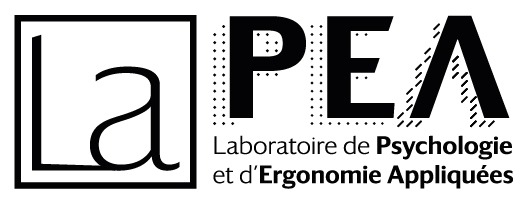Bureau 5035
https://www.researchgate.net/profile/Franck_Zenasni
Thèmes de recherche
Je suis professeur en psychologie différentielle à l’université Paris Cité. Après avoir défendu en 2002 ma thèse portant sur l’étude des relations entre les émotions et la créativité, j’ai été post-doctorant à l’institut Gustave Roussy (2004-2006) où j’ai étudié les relations médecins patients, la qualité de vie des patients et l’impact émotionnel des annonces de diagnostics. J’ai par la suite obtenu un financement de la fondation de France pour développer une formation et un DVD sur l’identification et l’éducation des enfants à haut(s) potentiel(s). Depuis 2009, je suis enseignant-chercheur au LaPEA (anciennement LATI), où je mène et supervise des recherches sur la créativité, l’intelligence émotionnelle, l’empathie, le développement des compétences, les comportements organisationnels positifs, la tolérance à l’ambiguïté. J’enseigne par ailleurs la psychologie de l’intelligence, la psychologie de la créativité, la personnalité au travail, le haut-potentiel, les designs de recherche et l’evidence-based practice.
Auparavant directeur des études du Programme de master Economics & Psychology (2012-2018), responsable du parcours Learning Science du Master Approches Interdisciplinaires et Innovantes Recherche et Enseignement (AIRE, 2018-2023) et membre du bureau de l’École Universitaire de Recherche Interdisciplinaire de Paris (EURIP, 2018-2023) je suis depuis le 1er Septembre 2024 responsable du master economie et psychologie. Depuis le 1er mars 2023, je suis expert référent SHS à la Direction Générale de la Recherche et de l’Innovation (Dgri) au département des politiques d’incitation à la recherche et au développement.
Responsabilités
Depuis Decembre 2024: Membre nommé du conseil d’orientation de l’ONISEP
Depuis Mars 2023 : Expert référent SHS, au département des politiques d’incitation à la recherche et au développement (DGRI-MESR)
Depuis Mars 2023 : Expert référent SHS, au département des politiques d’incitation à la recherche et au développement (DGRI-MESR)
Depuis septembre 2022 : Membre élu du Conseil Scientifique de l’institut de psychologie, faculté Sociétés et humanités, Université Paris Cité
(113 enseignant.e.s chercheur.e.s)
Depuis janvier 2019 : Directeur du Laboratoire de Psychologie et d’Ergonomie Appliquées, UMR 7708, LaPEA (Université Paris Cité, Université Gustave Eiffel)
2018-2023 : Membre nommé du bureau de l’École Universitaire de Recherche Interdisciplinaire de Paris (EURIP, Centre de Recherche Interdisciplinaire, Université Paris Cité)
2018-2023 : Co-directeur du Master Approche interdisciplinaire pour la Recherche et L’Éducation (AIRE, Université Paris Cité)
2017-2023 : Membre du Département Frontière du Vivant et de l’Apprendre (Université Paris Descartes)
2016-2022 : Membre élu du Conseil de gestion de l’institut de psychologie et du conseil académique local
2015-2020 : Co-responsable du service d’enseignement Psychologie différentielle-Psychologie du Travail- Ergonomie
2012-2018 : Directeur des études du master Recherche « Économie et Psychologie », Université Paris Descartes, Université Paris 1 et Paris School of Economics.
Contrats de recherche
2019-2021: Scientific Director of the project “Right to Repair » Funded by the Plan d’investissement dans les compétences (PIC). 9,6 millions euros
2016-2017: Principal Investigator of the project « « Lesson from a faraway land: The effect of travelling and expositions to new cultures on creativity ». Funded by Université Sorbonne Paris Cité National University of Singapore (N° 2016-05-R). 30000 euros
2015-2017: Scientific Director of the project « Re-boost: A composite training of specific skills for NEET » Funded by the European Social Fund (N°MDFSE 201505546). 588000 euros
2015-2017: Co-principal Investigator of the project «Measurement & Development of Narrative Imagination (NI) » Funded by the John Templeton Foundation (grant Number RFP-15-05). Collaboration with Pace University (New-York, Dr Baptiste Barbot). 199000 Dollars
Publications depuis 2016 (ACL)
Schoeller, F., Zenasni, F., Bertrand, P., Gerry, L. J., Jain, A., & Horowitz, A. H. (2019). Combining virtual reality and biofeedback to foster empathic abilities in humans. Frontiers in psychology, 9, 2741.
Botella, M., Nelson, J., & Zenasni, F. (2019). It is time to observe the creative process: How to use a creative process report diary (CRD). The Journal of Creative Behavior, 53(2), 211-221.
Brunet-Gouet, E., Myszkowski, N., Ehrminger, M., URBACH, M., Aouizerate, B., Brunel, L., … Zenasni, F & Fond, G. B. (2019). Confirmation of a two-factor solution to the Questionnaire of Cognitive and Affective Empathy (QCAE) in a French population of patients with schizophrenia spectrum disorders. Frontiers in Psychiatry, 10, 751.
Celume, M. P*., Besançon, M., & Zenasni, F. (2019). How a dialogic space can impact children’s creativity and mood valence in Drama Pedagogy Training: Study with a French 4th grade sample. Thinking Skills and Creativity, 33, 100576.
Celume, M. P*., Besançon, M., & Zenasni, F. (2019). Fostering Children and Adolescents’ Creative Thinking in Education. Theoretical Model of Drama Pedagogy Training. Frontiers in psychology, 9, 2611.
Hodzic, S., Scharfen, J, Ripoll, P, Holling, H., Zenasni, F. (2018). How efficient are emotional intelligence trainings: A meta-analysis? Emotion Review, 10(2), 138-148.
Robieux, L., Zenasni, F., Flahault, C., & Tavani, J. L. (2018). L’espoir dans la maladie chronique : représentations sociales de l’espoir chez les patients et soignants. Psychologie Française, 63(1), 37-50.
Bertrand, P., Guegan, J., Robieux, L., McCall, C. A., & Zenasni, F. (2018). Learning empathy through virtual reality: Multiple strategies for training empathy-related abilities using body ownership Illusions in embodied virtual reality. Frontiers in Robotics and AI, 5, 26.
Myszkowski, N., Brunet-Gouet, E., Roux, P., Robieux, L., Malézieux, A., Boujut, E., & Zenasni, F. (2017). Is the Questionnaire of Cognitive and Affective Empathy measuring two or five dimensions? Evidence in a French sample. Psychiatry Research 255, 292-296.,.
Pène, S., Bihanic, D., Zenasni, F., Le Bœuf, J. & Vial, S. (2017). Éditorial. Sciences du Design, 6,(2), 8-11.
Liang, C.T., Zenasni, F., Liu, Y.C., Liang C (2017). The role of intrinsic motivation in student imagination: A comparison between Engineering and Science majors. International Journal of. Engineering Education, 33(5), 1672-1683
Myszkowski, N., Villoing, B., Zenasni, F., Jaury, P., Boujut, E. (2017). Monitoring stress among internal medicine residents: An experience-driven, practical and short measure. Psychology Health and Medicine, 22(6), 719-726.
Lec, F., Alexopoulos, T., Boulu-Reshef, B., Fayant, M., Zenasni, F., Lubart, T., & Jacquemet, N. (2017). The outof-my-league effect. Behavioral and Brain Sciences, 40. doi:10.1017/S0140525X16000534
Zenasni, F., Mourgues, C., Nelson, J., Muter, C., Myszkowski, N. (2016). How does Creative Giftedness Differ from Academic Giftedness? A Multidimensional Investigation. Learning and Individual Differences, 52, 216-223
Myszkowski, N., Storme, M., Zenasni, F. (2016) Order in complexity: How Hans Eysenck brought differential psychology and aesthetics together. Personality and Individual Differences, 103, 156-162.
Hodzic, S., Ripoll, Zenasni, F. Costa, H. (2016). Are Emotionally Intelligent Students More Resilient to Stress? The Moderating Effect of Emotional Attention, Clarity and Repair. Behavioral psychology, 24(2) 253-272
Myszkowski, N., Zenasni, F. (2016). Individual Differences in Aesthetic Ability: The Case for an Aesthetic Quotient. Frontiers in Psychology. 7:750. doi: 10.3389/fpsyg.2016.00750
Alfonso, L., Zenasni, F., Hodzic, S., Ripoll, P., (2016). How do emotional intelligence and quality of working life favor organizational citizenship behaviors? Psychological Reports, 118, 107-127, doi: 10.1177/0033294115625262
Picard, J., Catu-Pinault, A., Boujut, E., Botella, M. Jaury, E., Zenasni, F. (2016). Burnout, Empathy and their Relationships: a Qualitative Study with Residents in General Medicine ». Psychology, Health and Medicine, 21(3), 354-361, doi:10.1080/13548506.2015.1054407.

